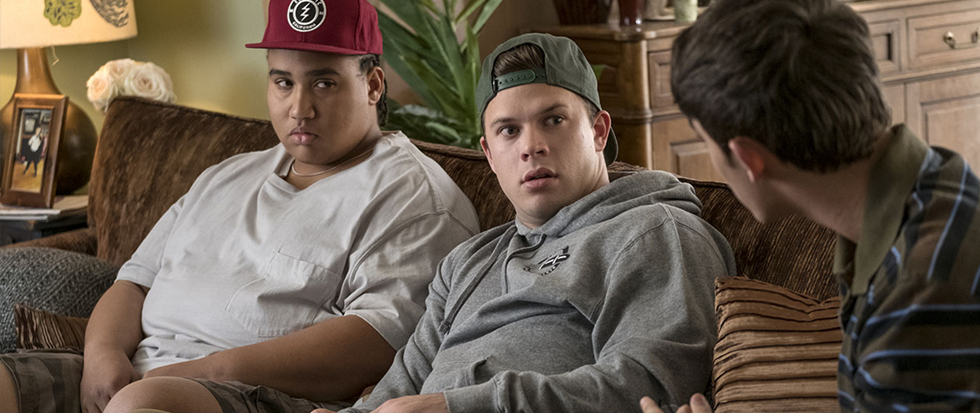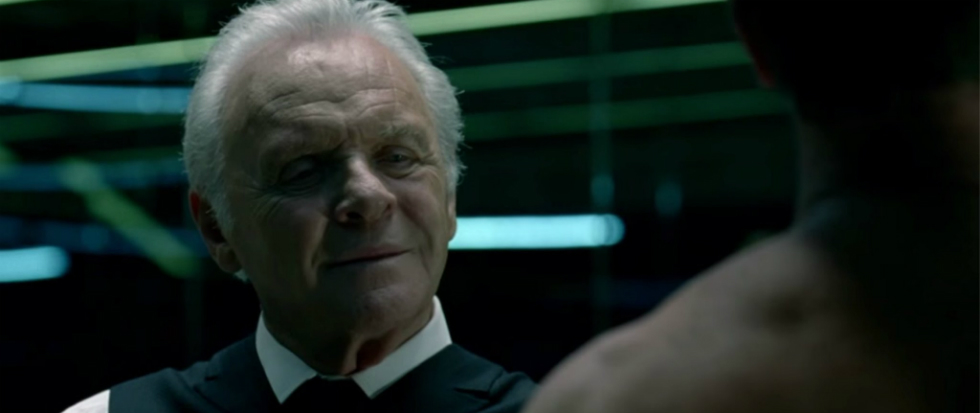
American Vandal Feels More Real than True Crime
America, and much of the English speaking world, has found itself riding high on a surfeit of true crime documentaries. Serial, Making a Murderer, The Jinx, buttress the serious side of the resurgent genre while programs like My Favorite Murder stand firmly at the other, less serious side of what is often a grizzly and horrific topic. So then what to do with American Vandal, a program that seems to lampoon Making a Murderer through the same amateur lens that is necessary to power My Favorite Murder?
Unlike any of the other aforementioned shows, American Vandal is completely fictional story of two high schoolers attempting to solve the mystery of who drew 27 dicks on cars in the teacher’s parking lot of their high school.
For the administration, this is an open and shut case. Dylan, a class clown and classic underachiever with a history of dick drawing, is the most obvious suspect and promptly expelled once a preponderance of circumstantial evidence is levied against him. For Peter, a fellow student with no meaningful connection to Dylan except a passing a basic acquaintance, this lack of definitive evidence is enough to set off his innate investigative sense.
Strangely, American Vandal’s tale of “who drew the dicks” is a wandering fantasia on storytelling and media in our brave new world. While the mystery of who did, indeed, draw the dicks is all but absolutely solved the end at the end of Vandal’s eight episodes, the effect is lasting. The audience isn’t treated to a jokey whodunnit about dicks and high schoolers. Well, not only that. American Vandal is quick to remind the viewer of the very real consequences of imprecise journalism and judgement. Peter and his best friend Sam are continuously tested as they navigate the complex strata of high school society.
As documentarians and investigators Peter and Sam show craft beyond their years but make mistakes crucial to the emotional core of the series. Early on, possibly exonerating evidence is destroyed when a neighbor is harassed to the point of exhaustion due to Peter’s documentary. It’s at this point the viewer is made to realize that unlike many other true crime documentaries, Peter is uploading his to the internet as his investigation progresses. When in universe viewers see the latest episode, they leap at the opportunity to “help” by slamming the neighbor with phone calls demanding they turn over the evidence.
Peter’s own inadequacies also shine through throughout the series. Peter attempts to discredit the testimony of a fellow student, Alex, by proving he is a liar because he lied about receiving a hand job. In the process of following this lead he broadcasts the sexual history of another, Sara, to anyone with YouTube. While Peter claims it was in the interest of showing all aspects of his investigation it clearly reminds the viewer that there are costs and that Peter himself is a part of the story. A veteran would no better, Peter does not.
This scorched earth brand of truth telling isn’t a one off. While following a different lead, Peter carefully documents the marital difficulties of the parents of another student. Further, Peter forces this student to relive several incredibly painful memories on camera. Eventually, this student provides key evidence but requiring a massive personal toll. They tell Peter, “now everyone’s secrets are out, across the entire school, all because you wanted to make the best movie?”
For every moral victory Peter claims in the search for truth he achieves a pyrrhic one as well. By the end of the series both he and Dylan are no better off than they began. American Vandal reminds us that sometimes people are who we thought they were, they’re human and they fail. What justice is Peter able to win if the true culprit can never be brought to justice? What is the worth of the lives Peter damaged in his search for truth? What about the jobs he cost?
American Vandal won’t tell us. That’s what makes it so special considering actual true crime documentaries. Peter’s reflectivity along with the painful reckonings that so many of the characters face throughout the ebbs and flows of the series force the viewer to see a darker side of these stories. Is the truth worth it and at what cost, especially when exposing it leaves those who sought it with little more than a story to tell.





